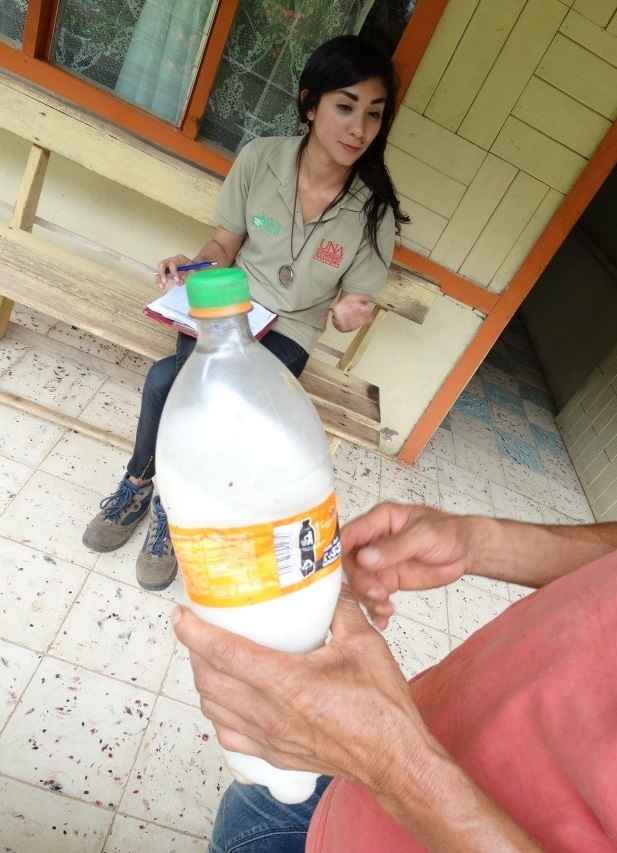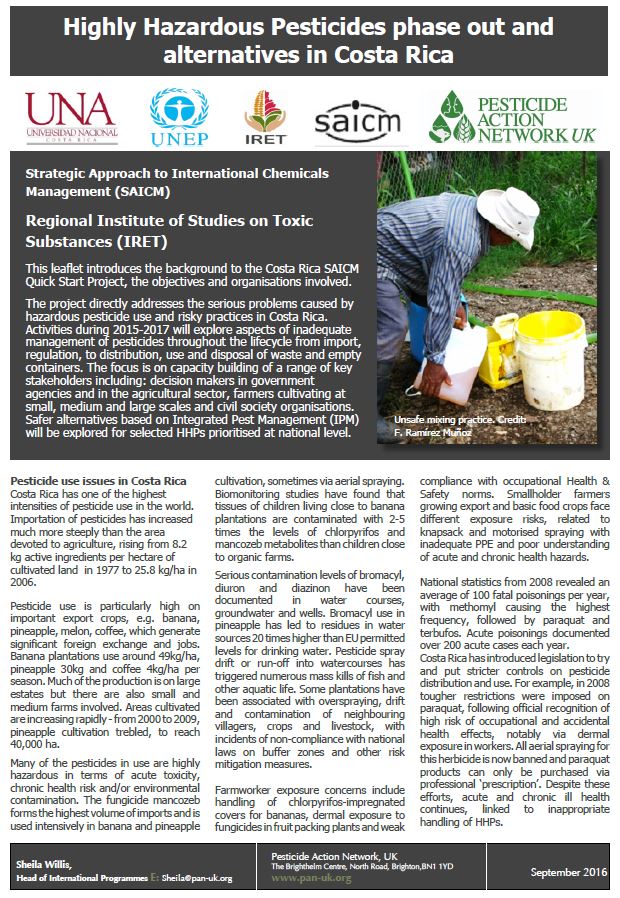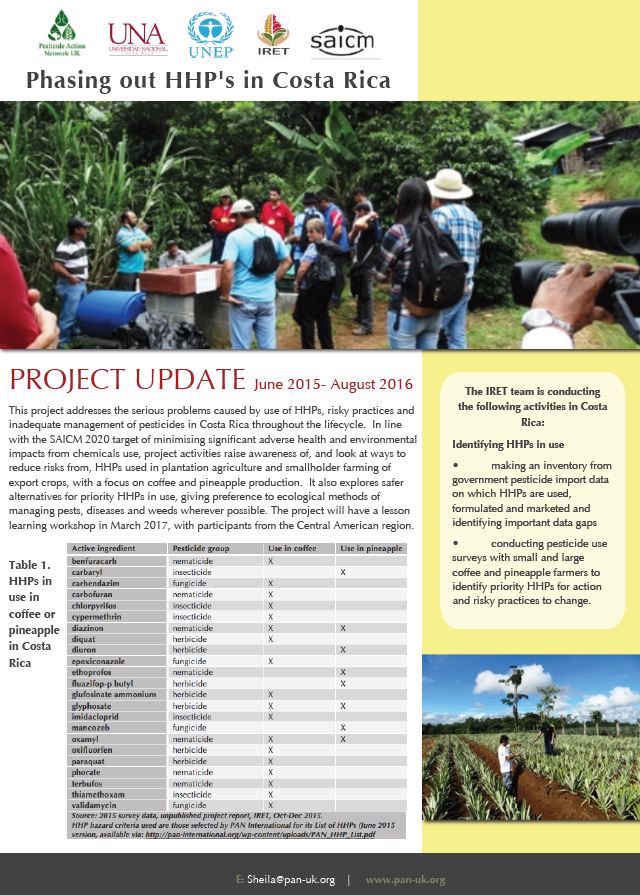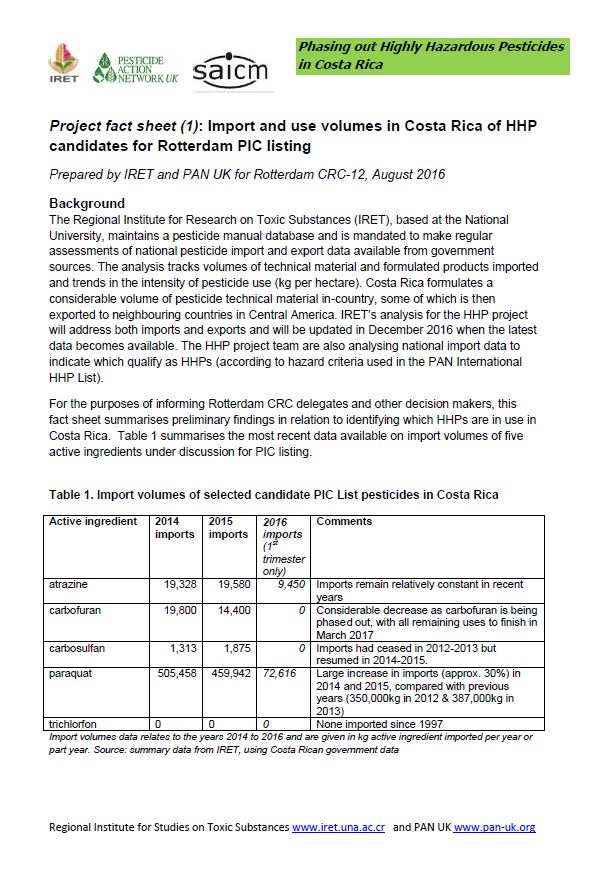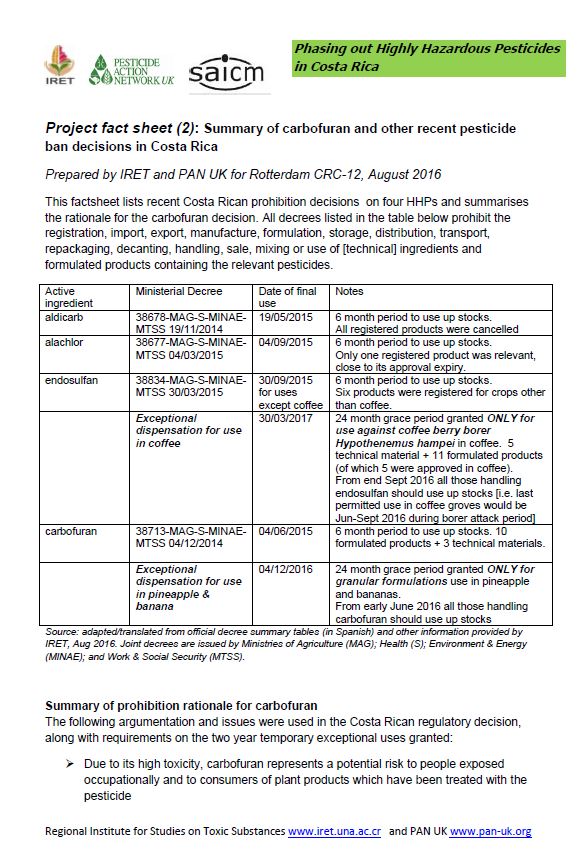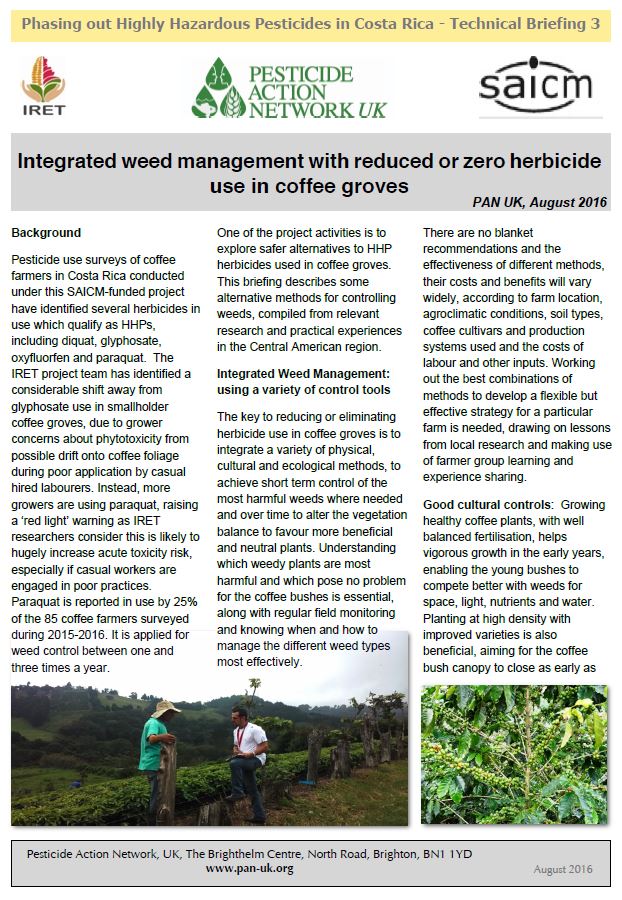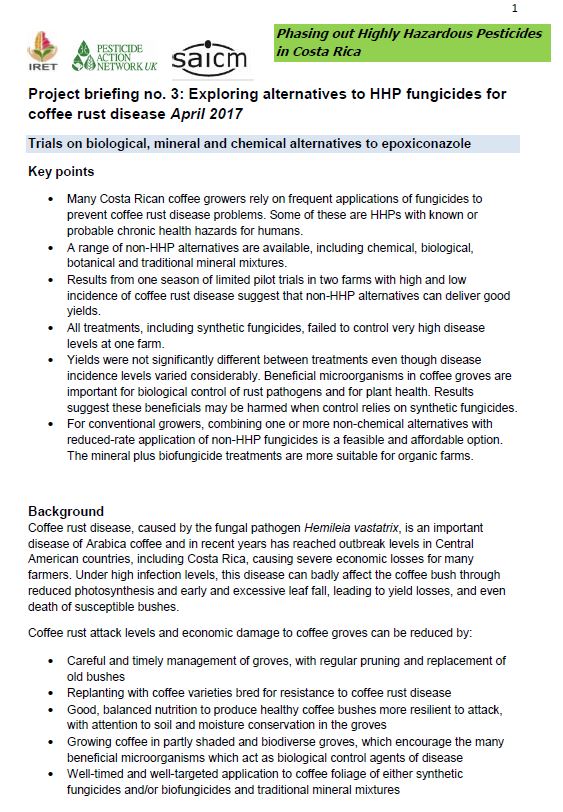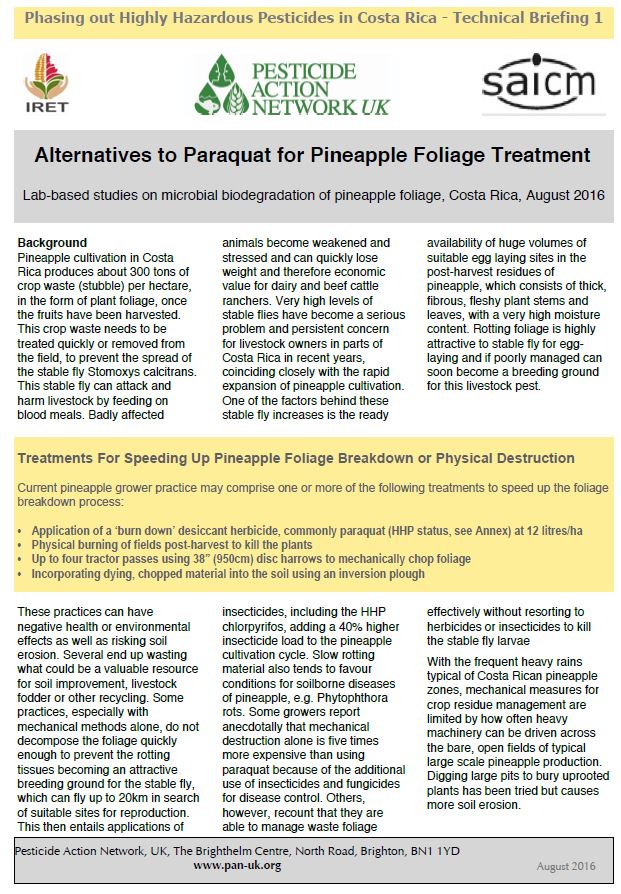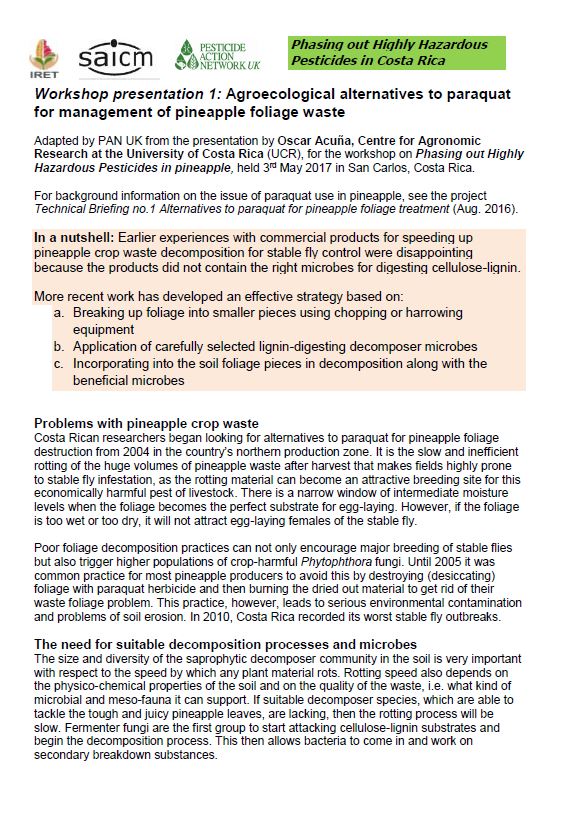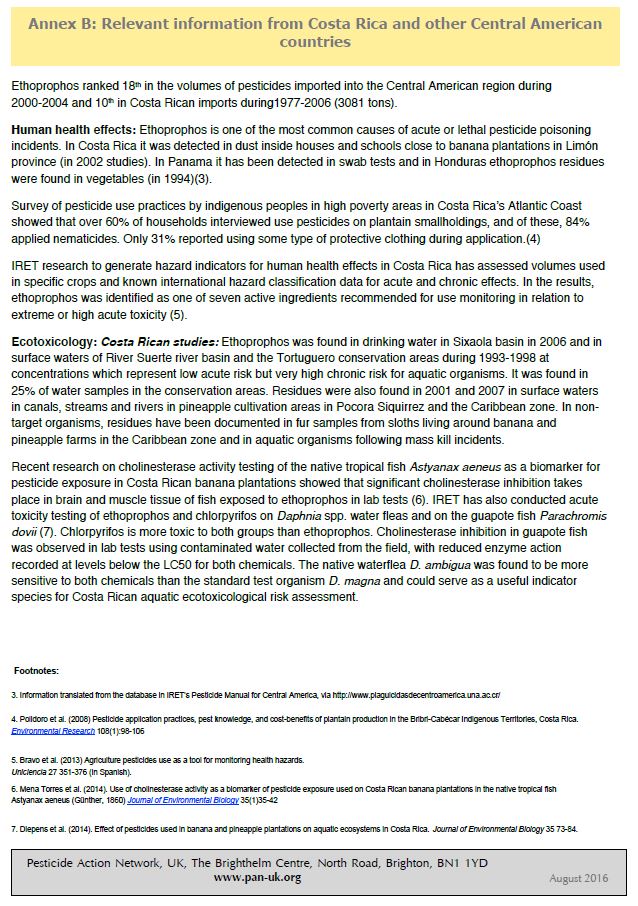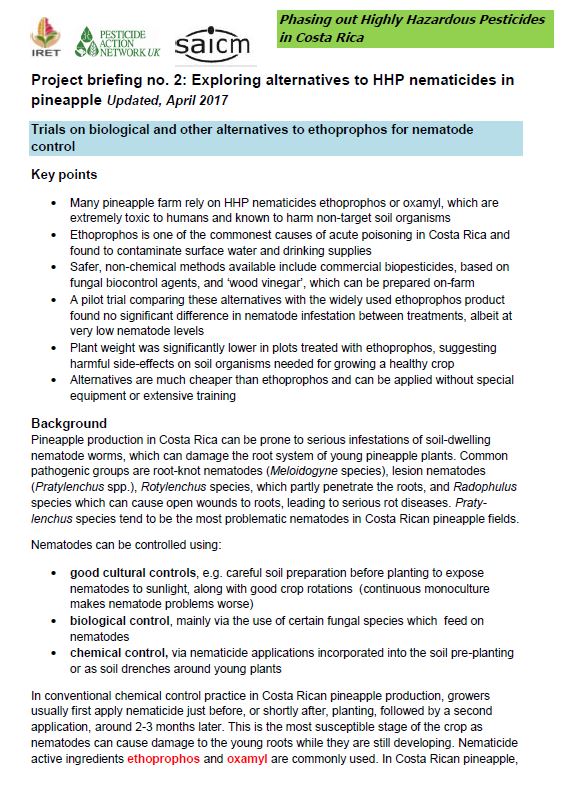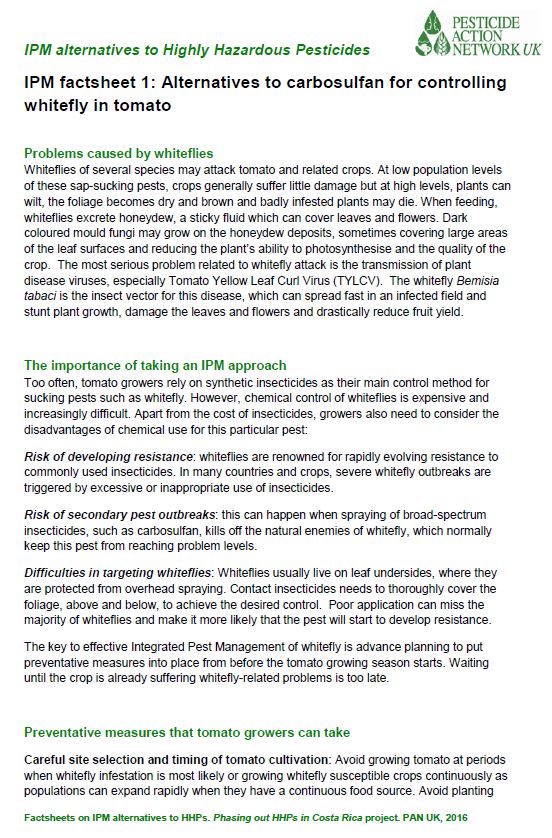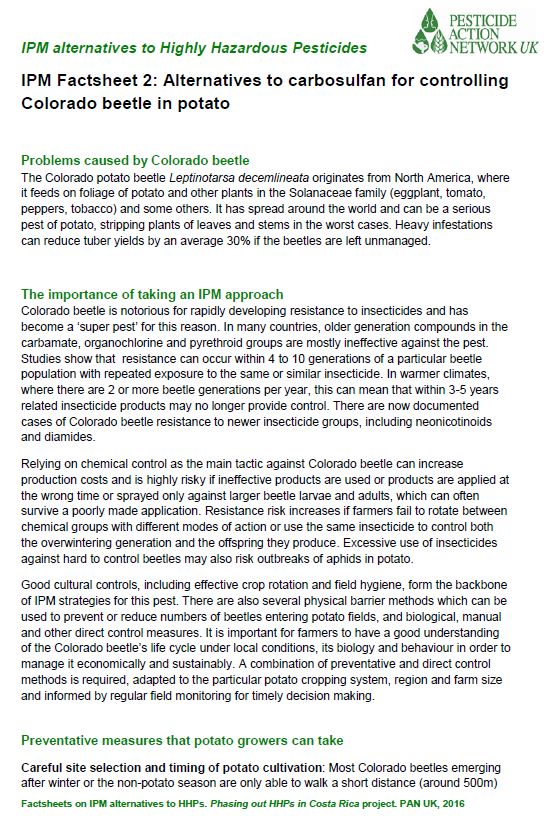Phasing Out HHPs in Costa Rica
Costa Rica in Central America has one of the highest intensities of pesticide use in the world, averaging over 25 kg applied per hectare of cultivated land. Pesticide use is particularly high on important export crops, e.g. banana, pineapple, melon and coffee. Many of the pesticides in use are highly hazardous in terms of acute toxicity, chronic health risk and/or environmental contamination.
National statistics from 2008 revealed an average of 100 fatal poisonings per year, plus over 200 acute poisoning cases. Serious contamination has been documented in water courses, groundwater, wells and coastal areas, while pesticide spray drift or run-off has triggered numerous mass kills of fish and other aquatic life.
Addressing the Serious Problems Caused by Highly Hazardous Pesticides in Costa Rica
This project, funded by the Quick Start Program of the Strategic Approach to International Chemicals Management (SAICM), directly addresses the serious problems caused by hazardous pesticide use and risky practices. Activities during 2015-2017 explore aspects of inadequate management of pesticides throughout the lifecycle (from import, regulation, to distribution, use and disposal of waste and empty containers) and try out safer alternatives based on Integrated Pest Management (IPM).
Coordinated by the Institute for Research on Toxic Substances (IRET) based at the National University (UNA), the project objectives are:
- Identify pesticides and use patterns which can be considered Highly Hazardous in the Costa Rican context
- Engage government agencies, the agriculture sector and NGOs in development of a joint National HHP Action Plan for risk and use reduction
- Raise awareness of the UN HHP approach and of short-term actions to reduce risks, with training of smallholder farmer organizations
- Identify potential alternative pest management options for selected priority HHPs and trial the most feasible, with a preference for non-chemical methods
- Review project results, share lessons and develop recommendations for follow-up
Contributing IPM Methods for Growing Coffee and Pineapples
PAN UK’s role includes contributing good practices in HHP phase out and successful IPM methods from outside Costa Rica for priority HHPs, with a focus on coffee and pineapple. We are sharing project findings with policy makers in the UN agencies and international chemical conventions and liaising with British supermarkets and international sustainability standards to promote ecological pest management uptake by Costa Rican growers of export crops.

